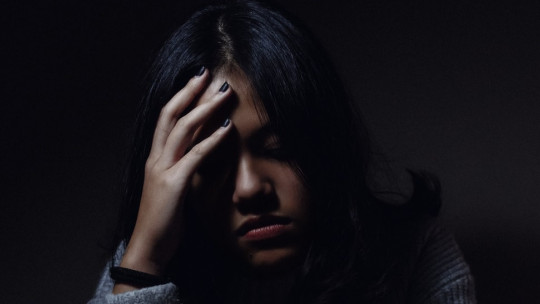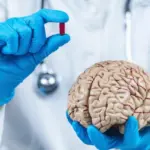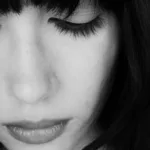
Currently, depression is the leading cause of disability in the world. It is for this reason that different empirical investigations have tried to respond to this mental health emergency, arriving at interesting results in terms of scientific knowledge.
One of the most studied areas is that which delves into the neurobiological bases of depression. For example, it has been hypothesized that major depression is based on a deficit of certain neurotransmitters in the neuronal synapses of our nervous system: norepinephrine, serotonin and, to a lesser extent, dopamine; a key line of research to understand the disease and the mechanism of action of antidepressants. It has also been found that subjects with depression tend to suffer structural alterations in several brain areas, such as the amygdala, hippocampus, orbitofrontal cortex and even glucose metabolism.
However, it is possible that the light of these very significant results about the functioning of our brain occludes another essential dimension of addressing depression. Depression is not just a brain problem, but there is a behavioral dimension of the disorder that sustains and reinforces the biological alterations. It is for this reason that some evidence-based treatments for depression are fundamentally based on modification at the level of behavior, as is the case of the brief behavioral activation treatment for depression (better known by its acronym in English, BATD). . In this article we will expand on this topic.
Drugs for major depression: useful but not enough
To make up for the biological and chemical deficiencies of a severely depressed brain, pharmacological treatment with an antidepressant is necessary. We could say that it is one of the arms of the treatment for major depression. However, although antidepressants can help in the short term in severe depression, Psychotherapy has proven to have similar effects in the short term but with fewer adverse effects and greater benefits in the long term than pharmacological treatment alone. Researchers are still trying to determine the benefits of combining both treatments in major depression, and for mild depression, it appears that the benefits of antidepressants are not significant.
Psychotherapies for depression
There are many types of psychotherapies for depression based on different theoretical-epistemological principles. However, all treatments that have been empirically tested focus to a greater or lesser extent on behavioral change. Some, such as cognitive-behavioral therapy, are based on psychotherapeutic processes of cognitive restructuring, that is, in an extremely simplified way, on getting the person to modify those biased thoughts and beliefs that would cause the behavior that sustains depression. Others, such as behavioral activation and acceptance and commitment therapy, agree on the futility of changing the content of thoughts and refer to behavioral change accompanied by a set of skills capable of sustaining it.
There are two ways to achieve the same result. These treatments have a very high effectiveness and are similar to each other. And, as we will see below, The common denominator between both lines of psychotherapies is focused on behavior modification. This would allow us to infer that it is in the behavioral dimension where those behaviors that reinforce and sustain the disease come into play. In other words, this path leads us to the point from which we started: depression is not just a brain problem.
The role of behavior in depression
One of the ways in which we recognize a person who suffers from depression is by the behaviors they (do not) carry out. In addition to having a low mood, feeling fatigued and losing interest, the person’s symptoms materialize in concrete terms: the person stops going to work, stays in bed for many hours, no longer participates in activities. meetings with friends, etc.
Something that tends to be emphasized from this approach is that depression, beyond having an organic substrate that makes it possible, is based on a way of living that is dysfunctional; that has been learned, reinforced and repeated. Reinforcement implies that there was a stimulus—for example, a family member’s advice to stay home—that generated a greater tendency for a behavior to be repeated and that, however, could be dysfunctional with what is important to a person. individual—attend your daughter’s school event. Its counterpart is that behaviors that could be significant are punished or not reinforced.
Therefore, the premise of many treatments focused on behavior change is that a depressed person may feel better if he or she changes the way he or she behaves. It is very difficult for many people to try to change their negative thoughts and emotions of their own free will (in fact, from this perspective we could argue that it is impossible, and if it were not, in the long term it would be worse to try to eliminate internal experiences since eventually those uncomfortable thoughts could reappear and with greater intensity).
Regarding the latter, it is important to highlight that researchers have found that the main risk factor in depression is also linked to the behavioral dimension: we are referring to rumination. At first glance, rumination might seem to be a purely cognitive phenomenon. However, it is ultimately an express and concrete behavior, since to ruminate the person stops carrying out other activities that could be important to them.
Furthermore, when ruminating, people tend to carry out this action with a purpose: avoid feeling painful emotions. Research carried out with participants who had suffered significant losses concluded that people had become depressed by ruminating about their loved ones only in those cases in which rumination, as a behavior, was used as a means to distance themselves. from pain. Ultimately, rumination is one more behavior in the repertoire of possible actions that promote and at the same time sustain depression.








